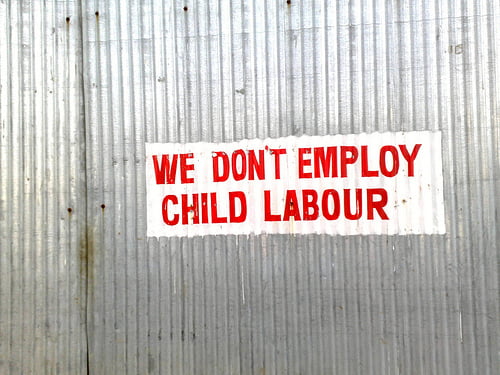

Economy
Half of countries pose serious human rights risks, warns investment group
Citizens from 48% of countries across the world are at serious risk of human rights violations, meaning global businesses ought to be wary about where they’re investing and operating.
The findings appear in a report by Ecclesiastical Investment Management (EIM) called Human rights: human wrongs, an emerging corporate risk. The firm notes that companies can successfully evaluate potential obstacles, such as slavery, torture, gender and racial discrimination and cultural and educational rights abuses, without harming its reputation.
The EIM study points towards World Trade Organisation figures, which place global exports of manufactured goods at $10 trillion in 2010. It says that while globalisation has positive benefits – such as improved education and living standards – there are drawbacks.
Many developing countries continue to have questionable human rights records – an issue that an increasing number of private and institutional investors look to exclude from their portfolios.
“[The] decision on whether to invest in a company means that we actively look for companies making a tangible commitment to civil society and contributing towards economic and social progress within communities, which will ensure that our funds return profits alongside principles”, said Neville White, socially responsible investment analyst at Ecclesiastical.
“We pride ourselves on independent analysis which means we’re not afraid to adopt contrarian positions and are in favour of long-term investment horizons.”
White added that EIM continued to reject companies that operated in Burma (now Myanmar) and Sudan, while it also excludes the mining and oil exploration industries.
The report uses data from global risks advisory firm Maplecroft to map the countries that pose the most serious human rights risks to its citizens (see chart below). Among the worst are Sudan, the Democratic Republic of Congo, Somalia, Afghanistan and Pakistan.
With this in mind, EIM has devised a list of five key principles for responsible investment in foreign countries:
– Do no harm; businesses should not exacerbate natural resource exploitation
– Investment should adhere to internationally accepted standards for respecting human rights
– Investment should be ‘zero tolerant’ of corruption and adhere to financial transparency
– Investment should support civil society and seek to be a positive community partner
– Community consultation and grievances should be adhered to under ‘protect and respect’
Further reading:
Ecclesiastical most popular fund provider among EIA members
Three-quarters of IFAs get requests for ethical investment options
Responsible investors seeing ‘enormous potential’ of emerging markets


 Environment12 months ago
Environment12 months agoAre Polymer Banknotes: an Eco-Friendly Trend or a Groundswell?

 Features11 months ago
Features11 months agoEco-Friendly Cryptocurrencies: Sustainable Investment Choices

 Features12 months ago
Features12 months agoEco-Friendly Crypto Traders Must Find the Right Exchange

 Energy11 months ago
Energy11 months agoThe Growing Role of Solar Panels in Ireland’s Energy Future





























